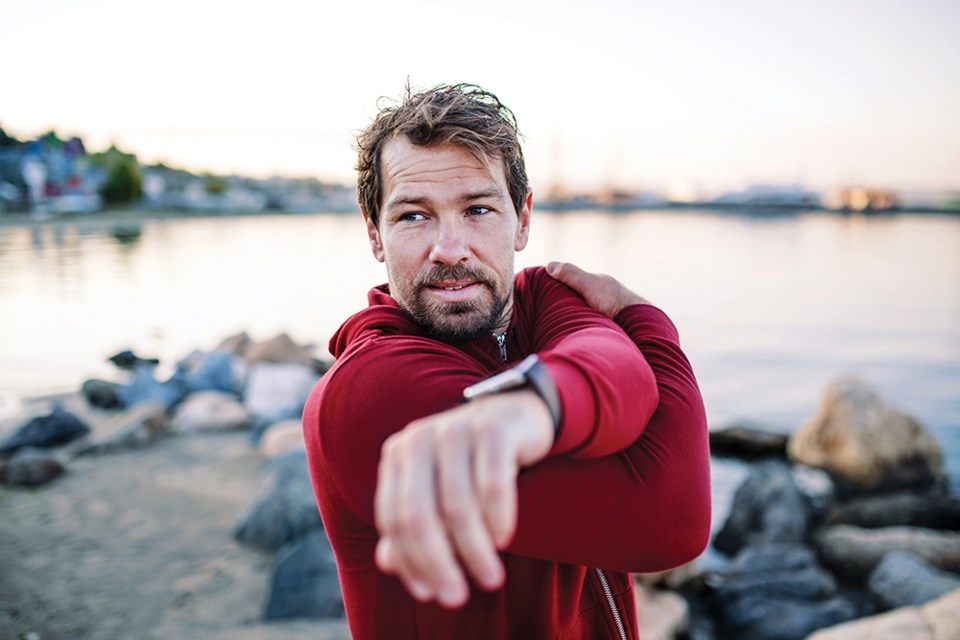I recently listened as a loved one told me of their recent thoughts of suicide, with a pain in my heart as I listened to their struggles, and their anguish. The culmination of more than a year of stress had taken its toll.
This person is unfortunately not unique in their struggle. We have all endured a great deal of mental, emotional and physical stress due to the pandemic and all its accompanying restrictions. Imagine being someone already dealing with mental illness.
Those suffering from anxiety, depression, PTSD, substance abuse and other forms of chronic mental illness are some of the most vulnerable right now in terms of loneliness, isolation and potential for self-destructive behaviour due to a lack of consistent support and a disrupted routine. And the effects are far-reaching.
There are also trickle-down effects to those with addiction and behavioural disorders like OCD, ADHD and substance abuse.
Along with any good that social distancing can do, it also increases feelings of isolation, loneliness, stress and fear—all of which can be triggers that make many mental illnesses infinitely worse.
Did you know?
· By age 40, about 50 per cent of the population will have or have had a mental illness.
· Suicide accounts for 24 per cent of all deaths among 15 to 24 year olds and 16 per cent among 25 to 44 year olds; it’s one of the leading causes of death in both men and women from adolescence to middle age.
· The mortality rate due to suicide among men is four times the rate among women.
· Almost one half (49 per cent) of those who feel they have suffered from depression or anxiety have never gone to see a doctor about this problem.
· Stigma or discrimination attached to mental illnesses presents a serious barrier, not only to diagnosis and treatment but also to acceptance in the community.
· Mental illnesses can be treated effectively.
So, what do we do?
How can we help improve these statistics?
Let’s start by continuing to shed light on the mental health crisis, since mental and emotional health is just as important as physical health.
We can also take our own steps to be proactive and possibly prevent illness.
Five evidence-based practices for improving mental health:
1. Nurture a connection, to other humans, animals and to nature
· Be sure to do this as often as you can, weekly (i.e.: a phone call to a loved one or reach out to someone who is struggling.
· Volunteer at an animal shelter or walk your working neighbour’s dog. Often the help you provide others uplifts you as well.
· Walk by the ocean or the forest, taking time to stop and take it all in. Remember, helping yourself is helping others, and gives a sense of purpose.
2. Exercise daily, 20 minutes rigorously
Walking/biking/hiking/rowing is plenty. Get your heart rate up each time, keep it enjoyable, and mix it up to challenge yourself (rigor varies with age and fitness).
3. Meditation and gratitude
Practice daily (start with five to 10 minutes) and use guided meditation recordings to help you if needed. Make an end-of-day habit of reviewing and writing down anything you are grateful for (hint: start with three things, keep it simple).
4. Consider plant/fungal medicines
Including psychedelics and cannabis therapeutics, with the guidance of an experienced health practitioner. There is a large body of evidence supporting these therapies now and it is becoming easier to access; safely and legally. Research MAPS at maps.org.
5. Eat for your brain
Eat naturally fermented foods daily, i.e.: miso, sauerkraut, kimchi, pickles (not the ones in vinegar, just salt and spices), dairy or water kefir, organic yogurt, kombucha, kvass, et cetera. Consume a variety of these items each day to naturally build up your good gut bacteria. It can have a significant impact not only on your body, but also your mind since the gut and the brain’s nervous systems are intricately connected.
Choose just one of the above five to get started. Be well.
· PR Mental Health & Addiction Services: 604.485.3300, local 441
· BC Mental Health Support: 310.6789 (No area code needed)
· 1.800.SUICIDE (784.2433)
Lisa Marie Bhattacharya, RHN, is a registered holistic nutritionist, fermenter and gardener/forager ecstatically living with her son on the beautiful upper sunshine coast.




